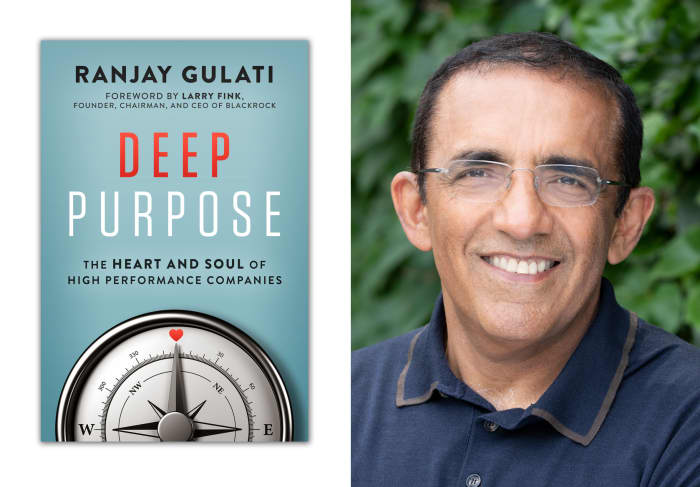This post was originally published on this site
Having a purpose — a core, existential intent or reason for being — has become fashionable. Performance coaches and motivational speakers wax eloquent about it. Companies try to attract and engage employees by defining organizational purposes that feel elevating and inspiring.
Although it’s easy to regard purpose as just another fad, research suggests we shouldn’t. According to a seminal study about purpose and life goals, pursuing a life purpose affords individuals a range of positive benefits, including “longer life span, fewer health care problems, and greater life satisfaction.” Purpose, the research concludes, “is not something merely to attain, but rather is an important predictive variable of physical health and mental health.”
Research by McKinsey suggests that close to 90% of employees seek purpose, and that almost two-thirds of employees at U.S.-based firms have considered their purpose in the wake of the COVID-19 pandemic. What defines purpose has multiple layers. Most of us want a purpose in life, in our career, and in our daily work. It’s great when these dimensions of purpose all align and flow together — when our life feels like a single, unified whole. Quite often, of course, this doesn’t happen as powerfully as we’d like.
Most of the respondents in McKinsey’s study (70%) reported that they frame their purpose specifically around the work they do. Yet it seems that only some of us — those at the top of the organizational pyramid — actually succeed in fulfilling our purpose in the workplace. In this study, 85% of senior leaders reported that they could realize purpose on the job. In contrast, an equal proportion of frontline staff reported feeling more ambivalent or negative about their ability to do so.
Some employers are listening. Not only are they embracing an organizational purpose that they hope will resonate with employees; they also are also helping employees to connect it with their own life purpose. As Kathleen Hogan, Microsoft’s chief people officer and one of the pioneers of this approach, told me, “You won’t truly work for Microsoft until Microsoft works for you.”
To help make this connection for employees, Microsoft launched an online portal called Microsoft Life that enables employees to link their work with their deepest personal ambitions. The company also supports specific employee projects that serve both Microsoft’s purpose and the employee’s own.
“Employees who feel a sense of purpose tend to be more loyal, engaged and enthusiastic about the companies for which they work.”
If you lead an organization, your employees’ lack of purposeful work is both a problem and an enormous opportunity. As numerous studies have demonstrated, employees who feel a sense of purpose tend to be more loyal, engaged and enthusiastic about the companies for which they work. This is just one of the reasons that purpose-driven companies perform better, according to some studies. You can likely unleash tremendous gains in productivity and innovation by not merely embracing an organizational purpose but by helping employees connect it with and incorporate it into their own personal reasons for being.
If you’re fortunate to work in an organization where purpose figures prominently, and if you feel personally connected to the company’s purpose, then I encourage you to lean hard into it. Look for new opportunities at work to really live your reason for being, adopting specific goals for yourself. When evaluating projects or initiatives for yourself, think not just about the business case for them, but also their potential alignment with the organization’s purpose.
If you struggle to live out your purpose at work, perhaps it’s time to join the “Great Resignation,” or “reshuffle” and find an employer whose purpose overlaps with yours and explicitly creates space for employees to live their purpose at work. As you research employers, consider how they describe organizational purpose. Be sure to go further and ask the following:
- How forcefully do senior leaders articulate and advocate for the purpose?
- Does the company take meaningful political stands on behalf of its purpose?
- Does the company manage to pursue a purpose and drive commercial success?
- To what extent do the managers and employees you meet seem engaged and excited by the company’s purpose? Do personal purpose, job purpose and career purpose appear to align for them?

Harper Business
Look deep into yourself and think about what you truly wish to accomplish. Think about your past activities: What recurring themes do you notice? What noble intentions? Think of others whom you admire, what their purposes might be, and whether you might borrow elements of them in crafting your own. Try to encapsulate your intention in a short phrase or sentence that conveys a broad objective with an idealistic cast to it, one that you might pursue both at work and in your personal life.
Simple goal-setting is admirable in the short-term. Striving to realize a higher purpose — that’s the work of a lifetime.
Ranjay Gulati is the Paul R. Lawrence MBA Class of 1942 Professor of Business Administration at Harvard Business School. He is the author of “Deep Purpose: The Heart and Soul of High-Performance Companies” (Harper Business, 2022).
More: Workers are burned out and want more flexibility — but remote work may not be the cure.
Also read: 5 steps to snaring new opportunities at work without having to join the Great Resignation


